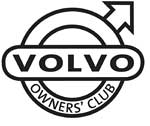

Photographs can be seen in our Volvo Gallery
200 hp Flexifuel engine broadens the Volvo Cars bioethanol offer
July 25 2007
During the first half of 2008, a five-cylinder 2.5-litre turbocharged Flexifuel engine with a power output of 200 hp will be introduced in the Volvo V70 and S80. Both models will also be available with a 2-litre Flexifuel engine. This means Volvo Cars will have one of the automotive market's most extensive biofuel ranges. All in all, five models, the Volvo C30, S40, V50, V70 and S80 are available with one or two Flexifuel engines.
"Flexifuel has considerable potential in larger models too. That is why we plan to continuously expand the implementation of this technology over the coming years. It's a move that is being driven by the extended availability of biofuels throughout Europe. Biofuel standardisation and guidelines for sustainable production within the EU would make the fuel's development even smoother," says Lex Kerssemakers, Senior Vice President Brand, Business and Product Strategy at Volvo Cars.
Flexifuel variants of the Volvo V70 and S80 will be available by the end of 2007 powered by a four-cylinder naturally aspirated engine. The 2.0F has been modified for E85 and produces 145 hp (107 kW) and 185 Nm of torque. The Flexifuel variants of the Volvo S40, V50 and C30 have a four-cylinder 1.8-litre naturally aspirated engine, the 1.8F, which produces 125 hp (92 kW) and 165 Nm of torque.
Modification for E85 includes:Fuel hoses, valves and gaskets have been adapted to handle ethanol's more corrosive properties. The injection valves have been reinforced and designed for E85 as more fuel is injected into the engine - necessary since the energy content of E85 is lower than that of petrol. In addition, the on-board software is calibrated for E85. The engine management system automatically senses the current blend of fuel in the tank and optimises the combustion process accordingly.
Competitive fuel consumption
Fuel consumption (EU combined) when running on E85 is 10.3 l/100 km (C30 1.8F), 10.4 l/100 km (S40 1.8F and V50 1.8F), 11.6 l/100 km (V70 2.0F, preliminary figure) and 11.3 l/100 km (S80 2.0F, preliminary figure).
Bioethanol is an entirely renewable fuel that can be made from most biomass sources such as corn, wheat, sugar-beet and cellulose. When running on E85 (85 percent bioethanol, 15 percent petrol) carbon dioxide emissions from the bioethanol are regarded as part of nature's own carbon cycle.
Bioethanol has the wind in its sails
Volvo Cars is launching Flexifuel cars on increasing numbers of markets. In addition to Sweden, these models are sold in France, Norway, Finland, Germany, Austria, the Netherlands, Spain, Britain, Ireland, Belgium and Switzerland. Flexifuel cars are about to be introduced in more countries across Europe.
In total, Volvo Cars expects to sell 10,000 cars with this technology in 2007.
Strong alternative
"No single renewable fuel can replace petrol and diesel by itself. We believe in a multi-energy society where many different fuels and technologies are developed in parallel. E85 is a strong alternative that reduces dependency on fossil fuels, and our Flexifuel programme is an important part of our strategy to contribute to sustainable personal mobility," says Volvo Cars President and CEO Fredrik Arp.
Legal | Privacy | Contact Us | Search | Site Map
Volvo Owners' Club Limited® 1962-2025

